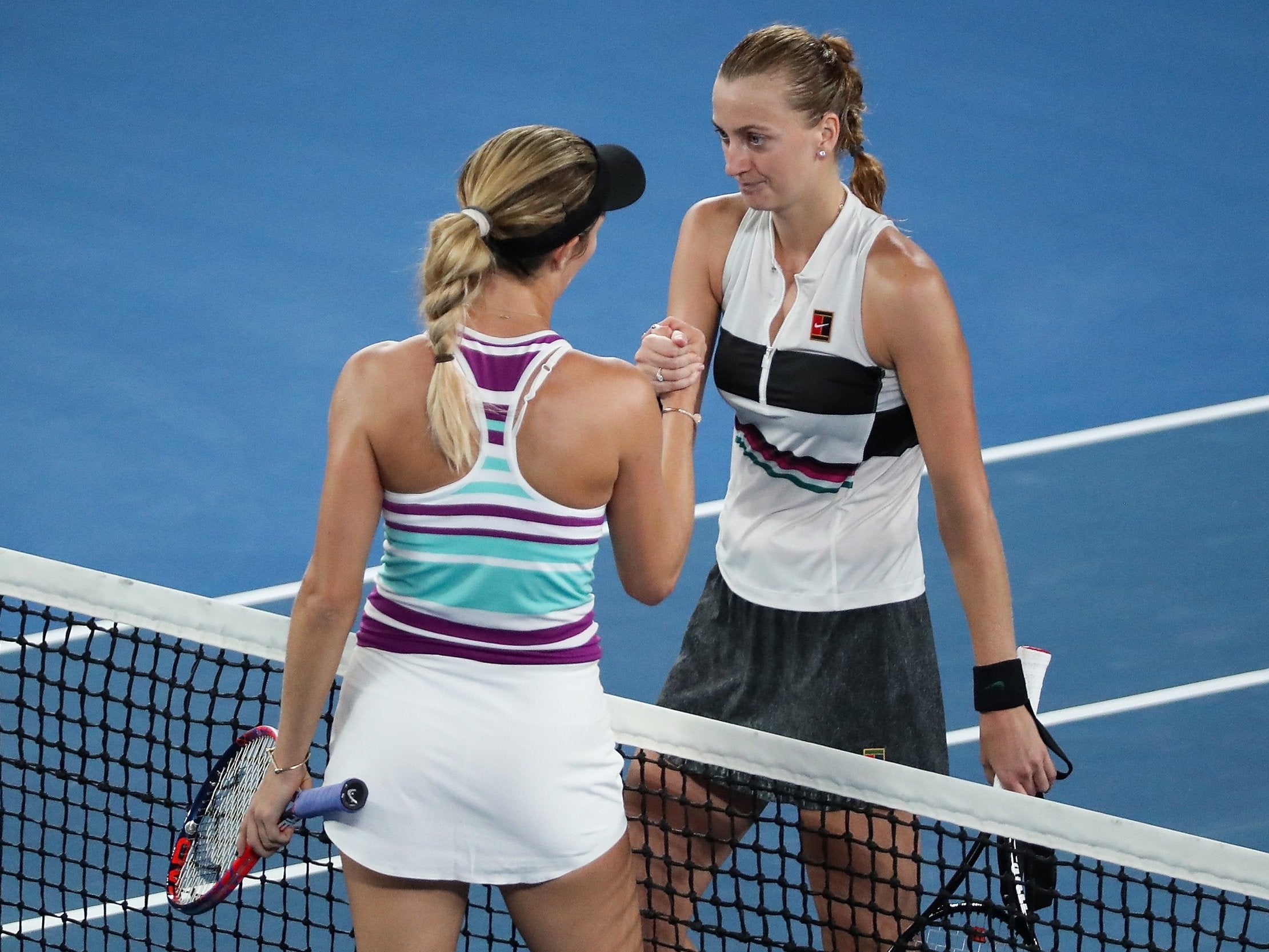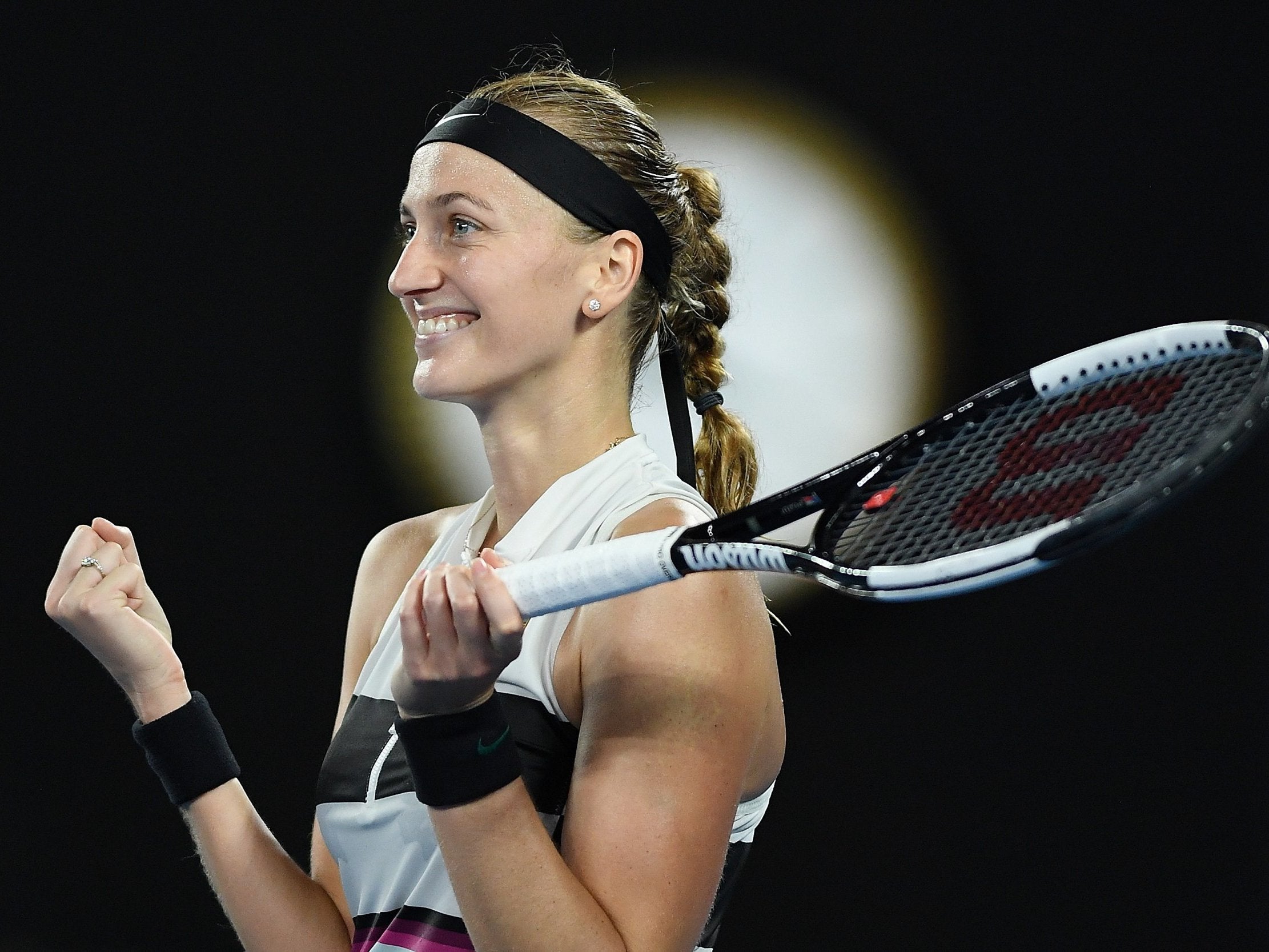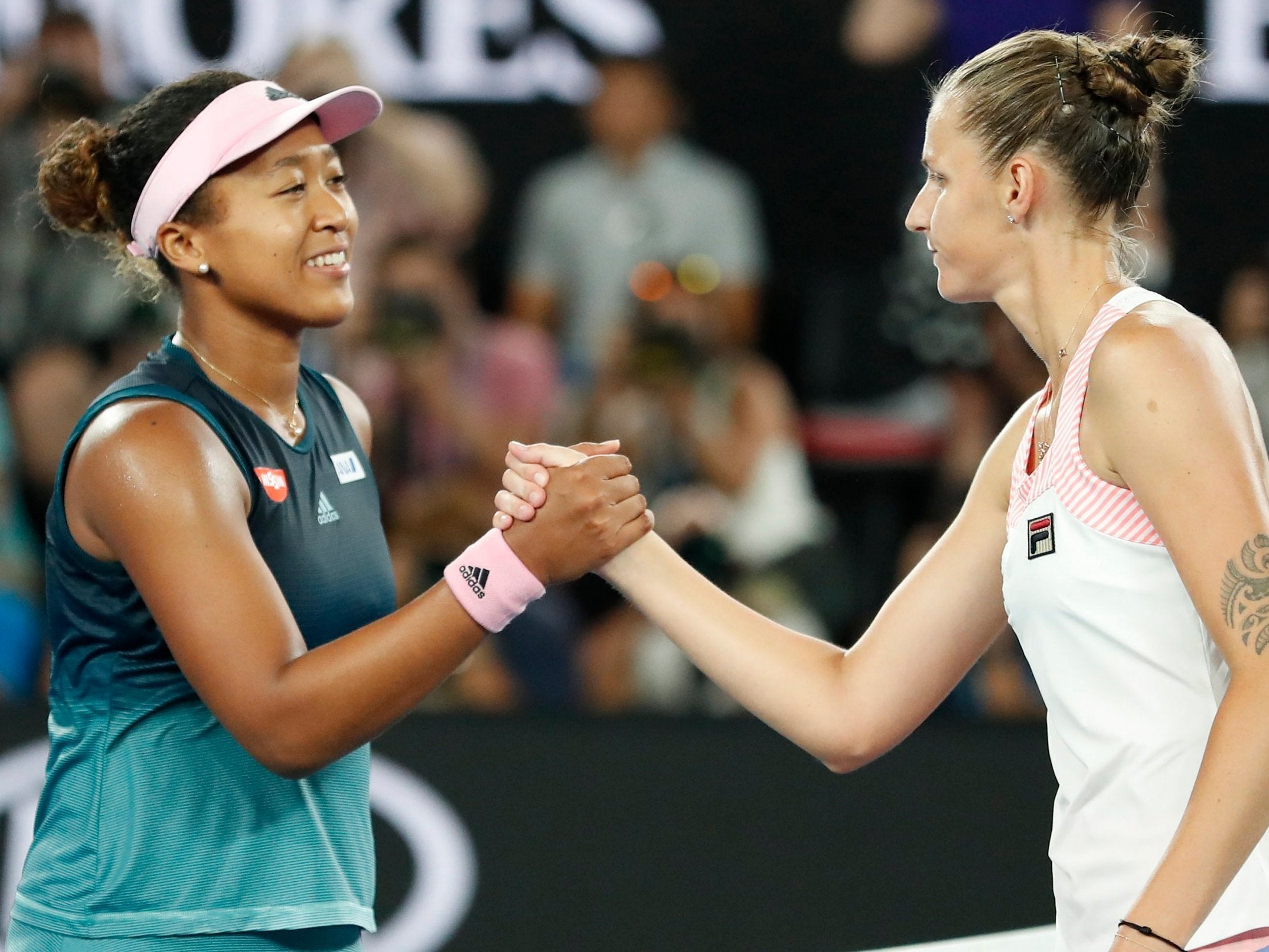Australian Open 2019: Petra Kvitova savours 'sweetness' of first Grand Slam final since knife attack
Kvitova will be aiming to crown her own comeback following the horrific attack in her home in December 2016 when she meets Naomi Osaka on Saturday

Petra Kvitova will be hoping to follow the example of Monica Seles when she plays in her first Australian Open final here on Saturday. This was the tournament where Seles became a Grand Slam champion again three years after she was stabbed on court and Kvitova will be aiming to crown her own comeback following a horrific knife attack when she meets Naomi Osaka in this weekend’s final in Rod Laver Arena.
Kvitova, whose two previous Grand Slam triumphs were at Wimbledon in 2011 and 2014, beat Danielle Collins 7-6, 6-0 in the first of Thursday’s semi-finals, while Osaka held off another spirited comeback by Karolina Pliskova to win 6-2, 4-6, 6-4 and earn a place in her second successive Grand Slam final following her victory at last year’s US Open.
Reminded that it was at this tournament in 1996 that Seles won her ninth and last Grand Slam title, three years after she was stabbed by an on-court intruder in Hamburg, Kvitova said she had met the former world No 1 for the first time in London last summer.
“She was actually the one who wanted to meet me, so it was a big honour,” Kvitova said. “I know how [the stabbing] affected her career a lot, especially as it happened on the court. It's a bit different, but it was such a nice feeling to meet someone who went through the same things and had the same thoughts.”
Kvitova revealed after her victory over Collins that even her surgeon had believed she had little chance of playing again after she suffered horrific hand injuries during the knife attack in her home by an intruder in December 2016.
“I found out recently that my doctor wasn't really happy with my hand during the second month, because the scars were very, very tight and hard, and I couldn't really do anything with the hand,” she said. “Luckily he didn't tell me during that period. He waited before telling me.”
She added: “I don’t think many people believed that I could do this again, to stand on the court and play tennis at this level. On the mental side it wasn't really easy to deal with it every time I came to a Grand Slam and lost. Maybe that's why this feels even sweeter.”
Kvitova said her recovery after the knife attack had been mental as well as physical and that for a while afterwards she had been uncomfortable being around men she did not know.
“I wasn't confident being alone anywhere,” she added. “I remember being alone in the locker room again for the first time in Prague. I said to my team: ‘That was the first time I was alone in there and it was good that I felt OK.’
“I had to do a lot of work with the hand. I had a lot of treatment. I think being involved in sport helped me a lot with that. I just made up my mind that I really wanted to come back - and I just did everything to achieve that.
“I was having treatment on the hand two or three times a day. I don't know if someone outside of sport would have done that, but of course I needed the hand to be better to get back on the court – and to be able to live a normal life.”
On the hottest day of the tournament so far, with the temperature reaching 38C, play was suspended on all outside courts because of the heat and the roof over Rod Laver Arena was closed midway through the first semi-final and remained shut for the second.

Having struggled in the heat in the past, Kvitova was particularly grateful when tournament officials decided to shut the roof with the score at 4-4 in the opening set. Collins, who had never won a Grand Slam match until she arrived here, had made the first break of serve, though Kvitova had broken back in the following game.
With the roof shut, the opening set went to a tie-break in which Kvitova took control. The Czech went 5-1 up and an ace took her to set point at 6-2, upon which she took the set playing serve-and-volley.
Collins had pushed hard until that point, but the second set became one-way traffic as Kvitova’s confidence grew. The two-times Wimbledon champion timed the ball exceptionally well and won the second set in barely half an hour, completing her victory by converting her first match point with a forehand winner.
Kvitova said she was happy that the roof had been closed. “I think it's great to have this rule,” she said. “Sometimes it's very dangerous to play in this kind of heat.”

Collins, however, disagreed. The 25-year-old American, who grew up in Florida and is comfortable in the heat, was unhappy that the roof had been closed in the middle of the match.
“I think that no matter what the situation is, if it's really hot they need to start the match the way it's going to finish,” the world No 35 said. “It certainly changed the rhythm of the match a little bit.”
Collins, who is expected to climb to a new career-high position at No 23 in the world rankings next week, paid credit to Kvitova.
“I learned that experience plays a big role in tennis and that Petra is an incredible champion,” she said. “I think there is a lot to learn from what she does on the court. I think she went out and played fearless tennis, so I think all credit to her.”
Osaka, the US Open champion, was pushed hard by Pliskova, who at one stage threatened another comeback following her remarkable quarter-final victory over Serena Williams. However, this was the 59thmatch in succession that Osaka has won after taking the opening set.
Pliskova, who said afterwards that the closed roof had probably favoured her opponent, was broken for the first time in the third game of the opening set as Osaka hit two successive backhand winners down the line. She was broken again serving at 2-4, double-faulting on break point.

When Osaka hit two successive aces to take the opening set and then broke in the opening game of the second set the world No 4 appeared to be comfortably in charge, but Pliskova gritted her teeth. The world No 8 broke back for 1-1, saved two break points in the following game and broke Osaka to love when the Japanese served at 4-5.
Now it was Pliskova setting the pace, but the momentum swung once again after Osaka saved three break points in the second game of the third set. The world No 4 broke to love in the third game and saved another break point with an ace when serving at 4-3. Two games later she served out for victory with two successive aces.
“I just told myself to regroup in the third set and just try as hard as I can,” Osaka said afterwards. “Somehow, I made it. I guess that's experience.”
Neither Kvitova nor Osaka have ever topped the rankings before, but whoever wins Saturday’s final will replace Simona Halep as world No 1.
Join our commenting forum
Join thought-provoking conversations, follow other Independent readers and see their replies
0Comments